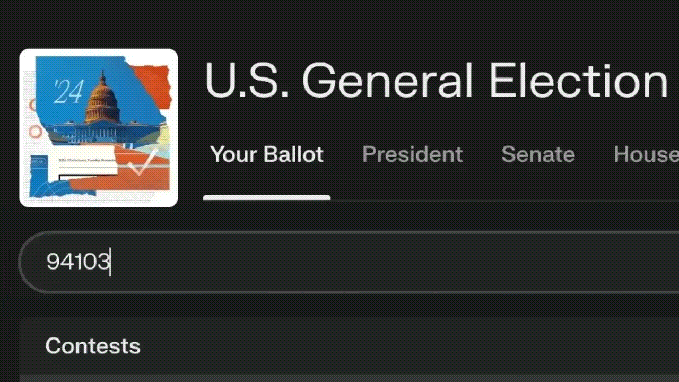Perplexity, the AI-powered search engine, might hallucinate from time to time. But the company wants to show that it’s trustworthy enough to use for tracking election results.
Today, Perplexity announced a dedicated hub for U.S. general election information. Populated by data from The Associated Press and Democracy Works, the company described it in a blog as “an entry point for understanding key issues.”
“Starting Tuesday, we’ll be offering live updates on elections by leveraging data from The Associated Press so you can stay informed on presidential, senate, and house races at both a state and national level,” Perplexity wrote. “Thank you to Democracy Works for granting us access to your Elections API to help power these experiences.”
Perplexity did not immediately respond to TechCrunch’s request about whether it is compensating the AP and Democracy Works for that data.

Perplexity’s election hub answers election-related questions like voting requirements and poll times, as well as AI-summarized analyses on ballot measures, candidates, policy stances, and endorsements. Aside from the summaries, the hub is essentially a wrapper around data from The Associated Press and Democracy Works’ API — but it’s notable in that Perplexity’s rivals have shown a reluctance to launch comparable features for fear of AI-generated misinformation.
In its recently released ChatGPT Search experience, OpenAI is directing users who ask about election results to The Associated Press and Reuters. Anthropic’s Claude chatbot won’t answer questions about election results, and neither will Google’s Gemini.
We can only hope that Perplexity’s hub is as accurate as the company purports it to be, given AI’s poor track record in this area.
In a July study, the Center for Democracy and Technology found that, in response to 77 different election-related queries, more than a third of answers generated by AI chatbots including Claude and Gemini included incorrect information. Other research has shown that major chatbots perform even worse when asked questions about elections by people with accessibility challenges and those whose primary language isn’t English.
TechCrunch has an AI-focused newsletter! Sign up here to get it in your inbox every Wednesday.





Leave a Reply